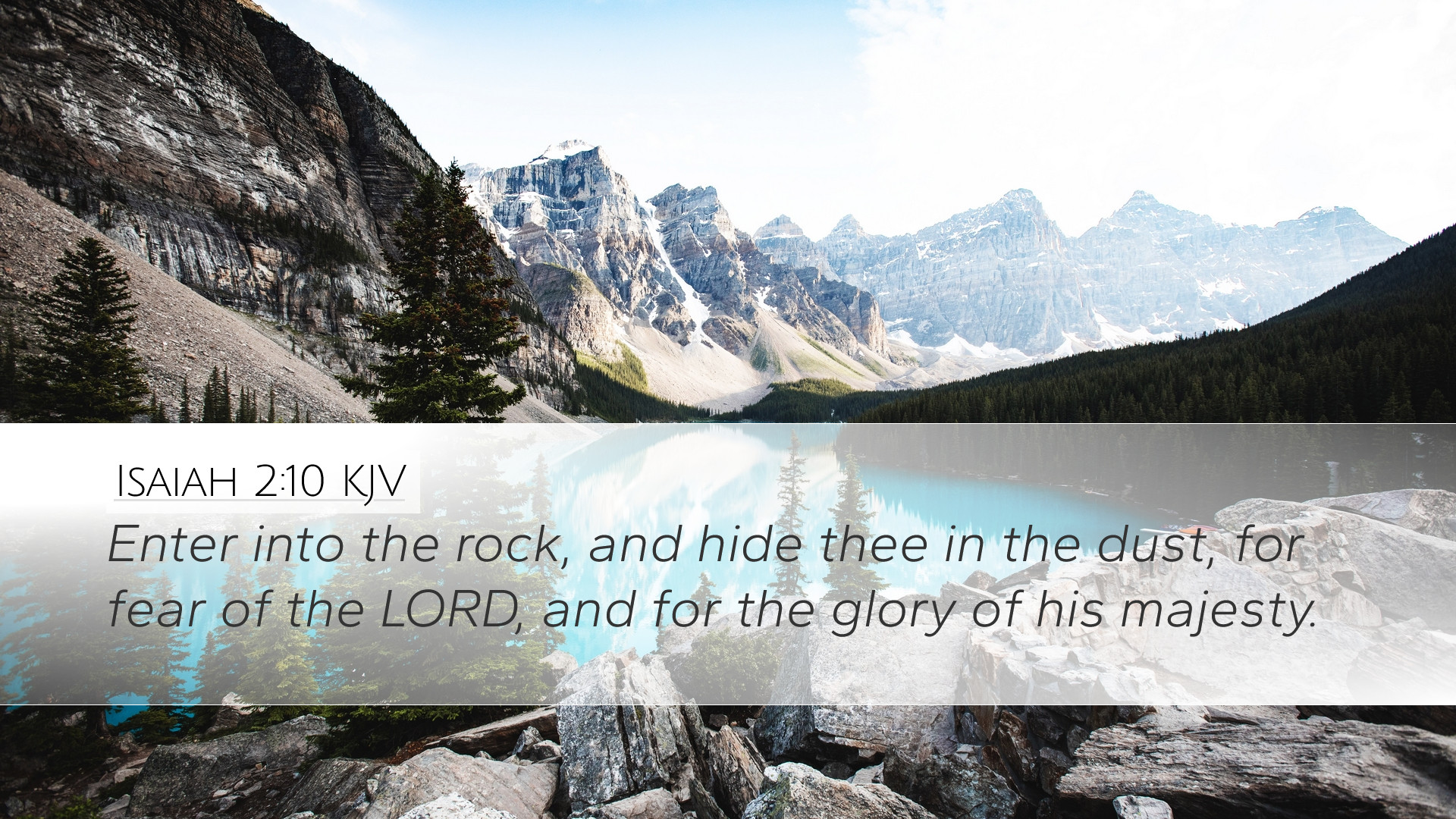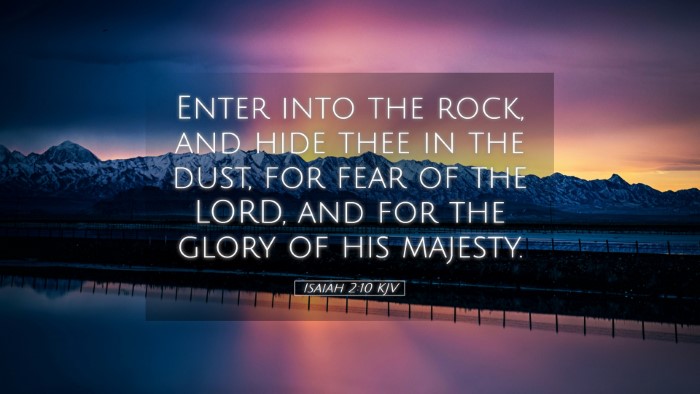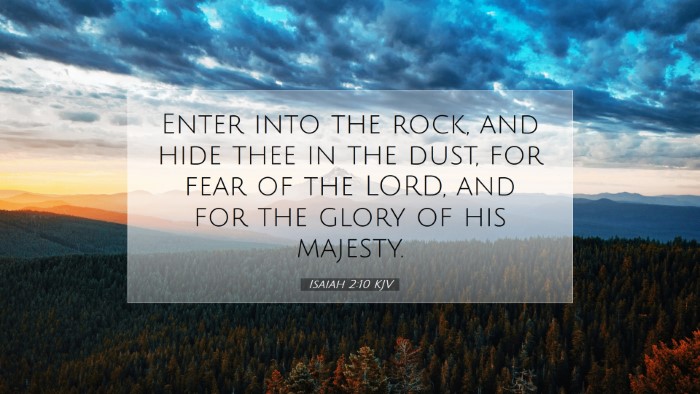Commentary on Isaiah 2:10
"Enter into the rock, and hide thee in the dust, for fear of the Lord, and for the glory of his majesty."
Isaiah 2:10 presents a profound admonition to humanity to recognize their place before God, specifically in the context of judgment and divine authority. This commentary collects insights from several public domain commentaries to provide a cohesive understanding.
Contextual Background
Isaiah prophesies during a tumultuous time in Israel's history, characterized by moral decay and impending judgment. The opening chapters of Isaiah reflect not only the hope of a future kingdom but also the stark realities of sin and its consequences. In this verse, he draws a vivid picture of both fear and reverence towards God, highlighting the need for humility in the face of divine majesty.
Theological Insights
This verse can be broken down into several theological themes relevant to contemporary audiences, especially pastors, theologians, and Bible scholars.
- The Fear of the Lord: The phrase "for fear of the Lord" emphasizes the necessity of a healthy fear or awe of God. Matthew Henry notes this fear is not one of terror but of reverence, acknowledging the holiness and supreme authority of God.
- Recognition of Divine Majesty: The "glory of His majesty" calls attention to God’s inherent glory, a theme prevalent throughout Scripture. Albert Barnes highlights that this glory often manifests itself in judgment, calling believers to respond appropriately to God's nature.
- Human Response to Divine Judgment: The action of "entering into the rock" suggests a natural human response to seek refuge when faced with divine accountability. Adam Clarke interprets this as an escape from the presence of God's judgment, indicating an awareness of the need for protection that can only be found in God Himself.
Practical Applications
For pastors and students of Scripture, the lessons derived from Isaiah 2:10 can be transformative.
- Embrace Humility: Understanding one’s position in relation to God encourages believers to approach Him with humility. It challenges them to reflect on their lives and the areas where they must repent and seek His grace.
- Teach the Fear of God: This verse presents a pivotal opportunity for theological education, emphasizing the importance of teaching congregations the concept of fearing God as a foundational aspect of faith.
- Communicate God’s Majesty: Pastors are called to magnify God's glory in their preaching. The glory of God should inform all biblical preaching, reminding listeners of their need for divine grace.
- Seek Refuge in Christ: The imagery of "the rock" serves as a metaphor for Christ, who provides safety and refuge from God's judgment. This serves as a segue into teaching about the hope found in the Gospel.
Historical Reflection
Historically, the call to "hide in the dust" has been reflected in the lives of believers who sought to protect themselves from the all-consuming nature of God’s judgment. Throughout the Bible, the imagery of rock as a refuge speaks to God's faithfulness and salvation (Psalm 18:2). Past exegeses highlight this truth and encourage believers to find safety in God amid life’s challenges.
Conclusion
Isaiah 2:10 serves as a poignant reminder of the glory and majesty of God juxtaposed with the frailty of humanity. The collective insights from Matthew Henry, Albert Barnes, and Adam Clarke provide a comprehensive understanding of the text's importance. It urges the faithful to recognize God’s power, seek refuge in Christ, and uphold a spirit of humility and reverence in their daily lives.


